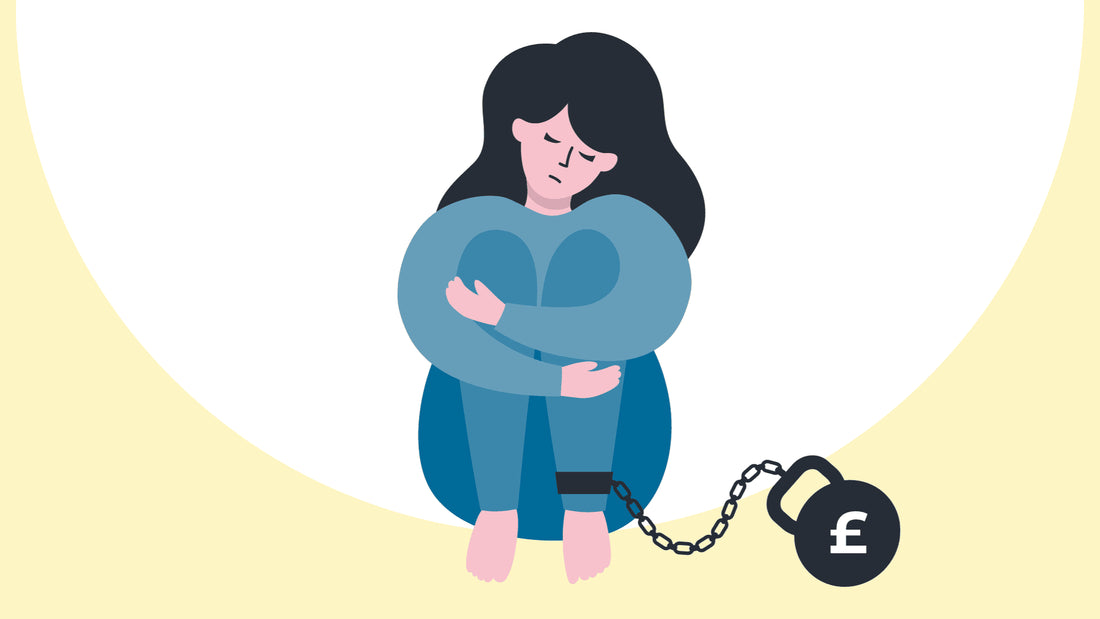Posted by Sam Patrick
on November 01, 2024

Economic abuse, a form of domestic abuse, involves controlling a partner's financial resources, often leaving them financially dependent and vulnerable. In the UK, economic abuse is unfortunately common, with studies showing that 1 in 6 women have experienced it in some form. Recognising and preventing economic abuse is essential to maintaining independence and safety in a relationship.
What is Economic Abuse?
Economic abuse occurs when one partner seeks to control the other’s finances, restrict their ability to earn or manage money, or use financial manipulation as a means of control. The abuser may limit access to bank accounts, restrict spending, or prevent the victim from working, creating dependency and often leaving the victim isolated and unable to leave the relationship due to lack of resources.
Economic abuse is now recognised under the Domestic Abuse Act 2021 in England and Wales, acknowledging it as a legitimate form of abuse alongside physical and emotional abuse.
Six Common Examples of Economic Abuse
1. Controlling All Financial Decisions
An abuser may insist on handling all finances, making it difficult for the victim to know the full extent of their financial situation. This might include making major financial decisions without consulting their partner, keeping them in the dark about household bills, or withholding account information and passwords.
2. Preventing Employment or Education
Economic abuse often involves blocking access to opportunities that could increase the victim's independence. This may include forbidding the victim from working, sabotaging their current employment (e.g., by hiding keys or important documents), or discouraging them from further education or training, limiting future financial autonomy.
3. Restricting Access to Money
Abusers may set arbitrary allowances for their partner, controlling how and when they can spend money. They might refuse to let the victim have their own bank account or debit card, often putting them in situations where they must ask for money for basic needs, creating a power imbalance that reinforces control.
4. Building Debt in the Victim’s Name
In some cases, an abuser will take out loans or open credit accounts in the victim's name without their knowledge. This form of financial abuse not only damages the victim’s credit score but also leaves them with significant debt, which can trap them in the relationship and prevent them from securing housing or loans in the future.
5. Controlling Personal Assets or Savings
Economic abuse can extend to personal savings or assets, including preventing a partner from accessing their own money or property. An abuser might take control of savings accounts, use the victim’s money for personal gain, or sell assets without their consent, effectively removing any financial safety net the victim may have.
6. Threatening Financial Stability During Separation
Economic abuse can continue even if a victim tries to leave the relationship. The abuser may refuse to pay child support, drain joint accounts, or manipulate the victim’s credit score to limit their independence. This tactic is used to force the victim to remain dependent or to punish them for leaving.
How Women Can Protect Themselves from Economic Abuse
While no one enters a relationship expecting abuse, there are steps women can take to protect their financial independence and reduce the risk of economic abuse. Here are some practical measures:
1. Maintain Financial Independence
Keeping a separate bank account in your own name is a fundamental step in maintaining financial independence. Ensure that some of your income is saved and managed separately from any joint account, creating a buffer in case you need it.
2. Educate Yourself About Finances
Learning about basic financial management, such as budgeting, saving, and credit scores, is essential. Being financially literate helps you to recognise if something unusual or suspicious is happening with your finances, making it easier to take action if needed.
3. Monitor Your Credit Report
In the UK, credit reference agencies such as Experian and Equifax allow you to check your credit score regularly. Monitoring your credit report can help you identify if any loans, credit cards, or accounts have been taken out in your name without your knowledge, giving you the chance to address it early.
4. Keep Important Documents Safe
Make copies of essential documents like your passport, birth certificate, and any financial statements, and store them in a safe place that your partner cannot access. This will make it easier to act quickly if you ever need to leave the relationship or access your accounts.
5. Seek Legal Advice and Support
Organisations like Women’s Aid and Refuge offer legal and financial advice for women experiencing abuse. They can help you understand your rights, support you in seeking financial independence, and offer guidance on housing and legal protections available under UK law.
6. Build a Support Network
Isolation is a common tactic in abusive relationships. Stay connected with trusted friends, family, or support groups, and share your concerns with them if you feel comfortable. A support network can provide emotional support, financial advice, and even practical help if you ever need to leave a difficult situation.
Economic Abuse is Preventable
Economic abuse has devastating effects, often trapping women in dangerous relationships and stripping them of their independence. Understanding the signs of economic abuse and taking proactive steps to protect your financial independence are vital measures to ensure you’re not left vulnerable.
If you or someone you know is experiencing economic abuse, reach out to organisations like Women’s Aid, Refuge, or the National Domestic Abuse Helpline (0808 2000 247), which provide resources, support, and guidance to help you reclaim financial independence and regain control over your life.
In a relationship, financial control is not love—it’s abuse. Protecting yourself financially is not only a safeguard for your future but also a powerful step towards ensuring a safe, healthy, and equal partnership.

